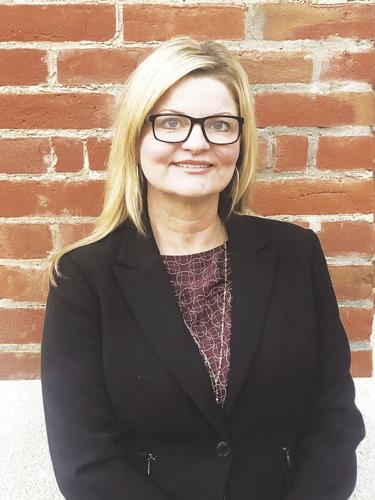
 By Daurice Kalfsbeek-Smith, Colusa County Supervisor and Gary Bradford, Yuba County Supervisor
By Daurice Kalfsbeek-Smith, Colusa County Supervisor and Gary Bradford, Yuba County Supervisor
As elected officials representing Colusa and Yuba counties, we sent a letter to Governor Newsom earlier this year encouraging him and his administration to advance the Agreements to Support Healthy Rivers and Landscapes (sometimes known as the Voluntary Agreements) and the associated benefits for communities, farms, businesses, the environment and the public. We were joined in this letter by counties throughout the Sacramento River Basin—we have specifically urged the State Water Board to identify the Agreements to Support Healthy Rivers and Landscapes alternative in its final staff report and forthcoming program of implementation as the State Water Board’s best pathway for updating the Sacramento/Delta portions of the Bay-Delta Plan.
![]()
![]() Here’s why we believe that is the right choice. The agreements represent a comprehensive, collaborative plan that is designed to contribute to the recovery of fish and wildlife species and provide an alternative to the one-size-fits-all requirements to release massive amounts of flows in an attempt to improve Bay-Delta fisheries. They bring us all to the table with the goal of developing comprehensive approaches, so instead of fighting in court, we can get busy implementing real solutions right away. They do include increased flows for the fish, but in a way that carefully balances potential impacts on our communities, and they also include real habitat improvements in the river, enhancing the functionality of the ecosystem that native species depend on.
Here’s why we believe that is the right choice. The agreements represent a comprehensive, collaborative plan that is designed to contribute to the recovery of fish and wildlife species and provide an alternative to the one-size-fits-all requirements to release massive amounts of flows in an attempt to improve Bay-Delta fisheries. They bring us all to the table with the goal of developing comprehensive approaches, so instead of fighting in court, we can get busy implementing real solutions right away. They do include increased flows for the fish, but in a way that carefully balances potential impacts on our communities, and they also include real habitat improvements in the river, enhancing the functionality of the ecosystem that native species depend on.

On behalf of the region, we remain concerned with the other alternative, the State Water Board’s proposal for a 55 percent unimpaired flow into the Delta, which would redirect significant amounts of water away from the Sacramento River Basin into the Delta. This simplistic approach would go beyond what is needed for environmental needs and would result in a substantial amount of water being put out to the ocean without any benefit. This in turn would be devastating to both the economy and the environment in the counties we represent, adversely affecting the availability of critical water for cities and rural communities (many of which are disadvantaged), farms, wildlife refuges for birds and many other species, salmon and other fisheries and recreation. We support a healthy Delta, but the unimpaired flow approach proposed by the State Water Board will redirect impacts upstream into the Sacramento River Basin and will likely fail to achieve its goal of protecting Delta water quality.

The potential impacts to this region are not abstract. We experienced dry-year impacts on the west-side of the region in 2022, similar to what we would see if an unimpaired flow approach is adopted by the State Water Board. For context, 600 square miles of farmland was fallow in 2022, which is more than 370,000 acres of farmland, nearly 80 percent of the total farmland in this area. A report by the University of California Davis estimated that there was $1.3 billion in lost economic value, 14,300 jobs lost, $732 million in lost labor income, and devastated supply chains.
More specifically, the “unimpaired flow” approach will have two significant effects in our region:
- Evacuate critical water in storage and prevent the diversion of water throughout our region, which will significantly affect precious water supplies for all these purposes. This is particularly true in dry years like we have seen this decade, where water available in storage is critical to helping Californians get through these challenging times. In other words, we will go backward under the State Water Board approach—not forward—in our efforts to better prepare for the next drought in California.
- Less surface water available will lead to significant additional groundwater pumping throughout the region, which will make our efforts to implement sustainable groundwater management envisioned under the Sustainable Groundwater Management Act (SGMA) more difficult. In our region, the groundwater resources are currently sustainable and we will continue to work hard with other local agencies to assure that our precious groundwater resources remain sustainable into the future. The State Water Board proposal will make our collective efforts to achieve groundwater sustainability more difficult, if not impossible.

In sum, we have encouraged the Newsom Administration to abandon the flawed “unimpaired flow” approach and to focus its energy on an integrated approach in the Agreements to Support Healthy Rivers and Landscapes where water is used for a specific environmental purpose that is compatible with important flood protection and other water uses in the region. We believe that this 21st century approach to water management will better serve the Sacramento River Basin and more effectively protect Delta water quality.
For more information about the harmful effects we would expect to see with the unimpaired flow approach, please the Oct. 21, 2022 Congressional Record, recognizing the University of California, Davis report on “Drought Ravaging California’s Sacramento Valley.” To see these impacts, we encourage you to watch a short film on the devastating drought impacts in Colusa County in 2022. The film can be watched here.




